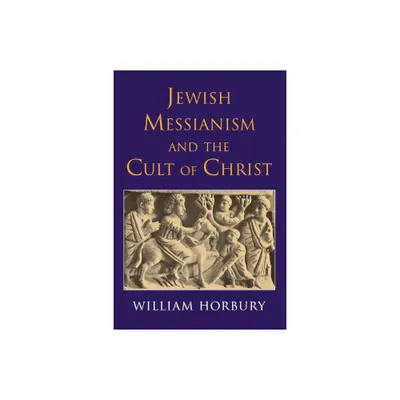Home
Disputed Messiahs: Jewish and Christian Messianism the Ashkenazic World During Reformation
Loading Inventory...
Barnes and Noble
Disputed Messiahs: Jewish and Christian Messianism the Ashkenazic World During Reformation
Current price: $94.99


Barnes and Noble
Disputed Messiahs: Jewish and Christian Messianism the Ashkenazic World During Reformation
Current price: $94.99
Loading Inventory...
Size: Hardcover
*Product Information may vary - to confirm product availability, pricing, and additional information please contact Barnes and Noble
Jewish and Christian messianic thought and activism in the Reformation era in the Ashkenazic world.
Disputed Messiahs: Jewish and Christian Messianism in the Ashkenazic Worldduring the Reformation
is the first comprehensive study that situates Jewish messianism in its broader cultural, social, and religious contexts within the surrounding Christian society. By doing so, Rebekka Voß shows how the expressions of Jewish and Christian end-time expectation informed one another. Although the two groups disputed the different messiahs they awaited, they shared principal hopes and fears relating to the end of days. Drawing on a great variety of both Jewish and Christian sources in Hebrew, Yiddish, German, and Latin, the book examines how Jewish and Christian messianic ideology and politics were deeply linked. It explores how Jews and Christians each reacted to the other's messianic claims, apocalyptic beliefs, and eschatological interpretations, and how they adapted their own views of the last days accordingly. This comparative study of the messianic expectations of Jews and Christians in the Ashkenazic world during the Reformation and their entanglements contributes a new facet to our understanding of cultural transfer between Jews and Christians in the early modern period.
Disputed Messiahs
includes four main parts. The first part characterizes the specific context of Jewish messianism in Germany and defines the Christian perception of Jewish messianic hope. The next two parts deal with case studies of Jewish messianic expectation in Germany, Italy and Poland. While the second part focuses on the messianic phenomenon of the prophet Asher Lemlein, part 3 is divided into five chapters, each devoted to a case of interconnected Jewish-Christian apocalyptic belief and activity. Each case study is a representative example used to demonstrate the interplay of Jewish and Christian eschatological expectations. The final part presents Voß's general conclusions, carving out the remarkable paradox of a relationship between Jewish and Christian messianism that is controversial, albeit fertile. Scholars and students of history, culture, and religion are the intended audience for this book.
Disputed Messiahs: Jewish and Christian Messianism in the Ashkenazic Worldduring the Reformation
is the first comprehensive study that situates Jewish messianism in its broader cultural, social, and religious contexts within the surrounding Christian society. By doing so, Rebekka Voß shows how the expressions of Jewish and Christian end-time expectation informed one another. Although the two groups disputed the different messiahs they awaited, they shared principal hopes and fears relating to the end of days. Drawing on a great variety of both Jewish and Christian sources in Hebrew, Yiddish, German, and Latin, the book examines how Jewish and Christian messianic ideology and politics were deeply linked. It explores how Jews and Christians each reacted to the other's messianic claims, apocalyptic beliefs, and eschatological interpretations, and how they adapted their own views of the last days accordingly. This comparative study of the messianic expectations of Jews and Christians in the Ashkenazic world during the Reformation and their entanglements contributes a new facet to our understanding of cultural transfer between Jews and Christians in the early modern period.
Disputed Messiahs
includes four main parts. The first part characterizes the specific context of Jewish messianism in Germany and defines the Christian perception of Jewish messianic hope. The next two parts deal with case studies of Jewish messianic expectation in Germany, Italy and Poland. While the second part focuses on the messianic phenomenon of the prophet Asher Lemlein, part 3 is divided into five chapters, each devoted to a case of interconnected Jewish-Christian apocalyptic belief and activity. Each case study is a representative example used to demonstrate the interplay of Jewish and Christian eschatological expectations. The final part presents Voß's general conclusions, carving out the remarkable paradox of a relationship between Jewish and Christian messianism that is controversial, albeit fertile. Scholars and students of history, culture, and religion are the intended audience for this book.


















